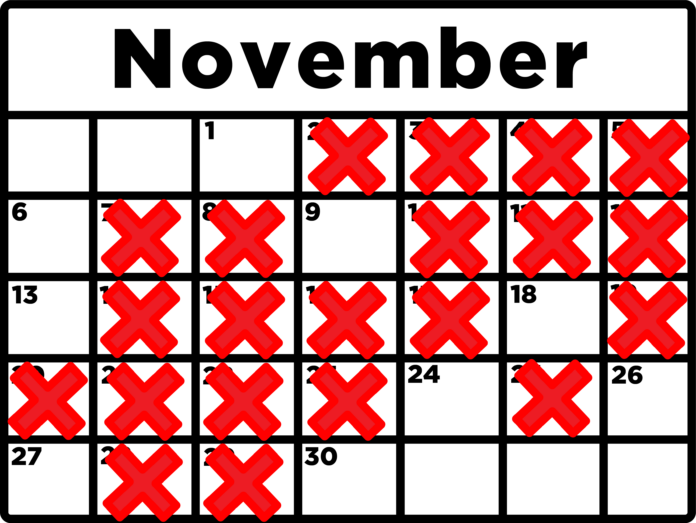
Most people who enter college do so with the hopes that what they experience throughout these years will provide them with the knowledge they need to be successful in the “real world.”
Some students, if they’re lucky and do the hard work to earn it, have the chance to gain that knowledge the best way anyone can: through real-world experiences while still in school. According to Zippia, an estimated 300,000 people have an internship a year.
This past summer, Rowan Today published a blog post that started with this opening line: “Hundreds of Rowan University students have used their summer break to complete internships…” It can be suspected that Rowan students have that same success in the fall semester as well, especially since some programs even require internship credit to graduate.
With this in mind, it means that there are currently full-time students on campus right now trying to juggle the responsibilities of an internship with four to six classes, likely school activities and possibly a part-time job.
At a university that pushes its students to go after these valuable experiences taken from internships, there should also be something in place to help these students balance them with everything else going on — specifically classes.
According to a study by the American College Health Association, 41.3% of students claim stress is the biggest reason for poor academic performance. Countless studies have looked into the correlation between internships and stress.
While professors can’t do much about the stress caused from internships, we at The Whit believe they can help their students by ensuring their academics don’t suffer because of internship experiences. There should be a policy put in place that allows students to get extensions on their work if they are falling behind due to their internships.
There are many professors at Rowan that students feel comfortable going up to and explaining their situation if they are feeling overwhelmed by all their work — but not all. Students shouldn’t have to fear whether or not a professor will understand they have a lot on their plate because of an internship. While internships count as credits in college, many students consider them a career-launching chance. According to the National Association of Colleges and Employers, 34% of graduates believe internships significantly impact their career direction.
While most universities don’t have policies that require professors across the board to give these students with internships extensions if they feel like they are falling behind, it is something they should look into.
According to College Recruiter, 57.5% of students who have internship experience receive job offers after graduation, which means it is unrealistic to ask students not to care about these opportunities. On top of that, when a professor isn’t as understanding, it leads to rushed work in those courses which might not be up to their standards.
No student should feel like they have to pick between good grades and real-life experiences considering both of them are critical to success after college. Why should students have to pick between their resume or GPA?
At a university that adversities how many of their students get internships, has department chairs send students emails containing different internship opportunities and even require internships to graduate, Rowan should understand all that comes with an internship.
Internships are not easy to balance with course loads, and that’s ok because, when you do get a full-time job, that will likely be your number one work-related priority. So when full-time students are juggling those same responsibilities, they deserve a grace period.
For comments/questions about this story, email the.whit.rowan@gmail.com or tweet @TheWhitOnline





